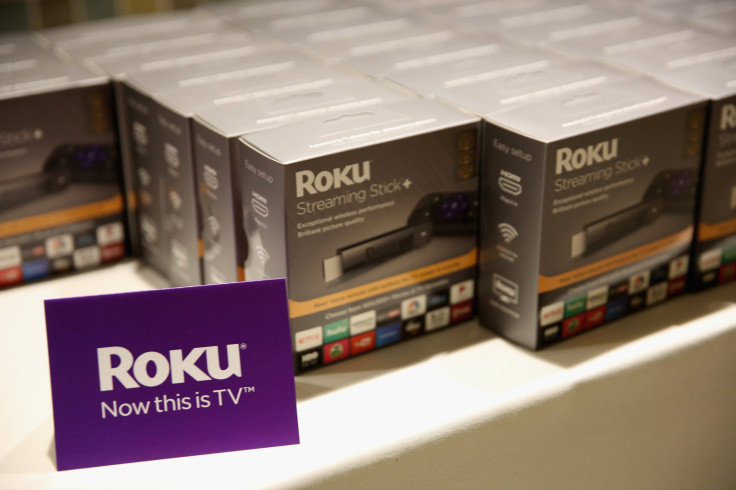Roku Is Still A TV Star

Investors in Roku (NASDAQ:ROKU) were momentarily spooked last month after the company's smart-TV manufacturing partner TCL announced a restructuring that made it look like it would stop making Roku TVs. In reality, TCL reorganized to make sure it could focus exclusively on making branded consumer electronics, like the new 75-inch 8K Roku TV with built-in voice controls that was unveiled this month at CES in Las Vegas.
Sure, 4K TVs have yet to reach their full potential, but 8K is the new tech wonder. Market analysts at IHS expect 2 million 8K sets to be sold by next year, and Roku will be in the mix.
Roku also recently released a preview of what investors could expect when it reports fourth-quarter and full-year 2018 results next month. It looks like the company is trying to solidify its role as the TV star leading streaming video into the future.
One stream to rule them all
In its recent update, Roku said the number of active accounts surged 40% in the fourth quarter to hit 27 million. And those subscribers watched 68% more programming -- some 7.3 billion hours -- an important consideration if Roku wants to make good on its promise of transforming itself from a hardware maker into a platform that generates recurring revenue streams.
Cable TV is dying, and streaming is the future. Finding a central hub from which to access all the available programming will be important as the medium matures. Roku is perhaps best positioned to be that vertically-integrated access point.
Roku is no longer just a manufacturer of devices that let you stream video. Its software platform has broad reach beyond Roku devices, too.
Fully one quarter of all smart TVs sold in the U.S. during the first nine months of 2018 came with the Roku operating system pre-installed, based on the company's estimates. Roku TVs provide lots of options and features for viewers accessing streaming content -- and at discount prices. That explains why investors were rightly scared when it seemed TCL was dropping Roku.
An agnostic provider
Roku aggregates a huge amount of content in one spot, and there are thousands of channels from which to choose. Users can sign up for subscriptions without having to leave the company's ecosystem, getting billed through Roku.
This also enables Roku to attract more advertising, the primary way it now makes money. Moreover, Roku earns a cut from ads that appear on other streaming services, because it demands the right to sell up to 30% of its content partners' ad inventory if their shows are to be available on its devices. Thus, ads seen on other streaming services might have actually been sold by Roku.
In the third quarter, sales grew 39% year over year. But platform revenue rocketed 74% higher to reach $100 million, whereas hardware revenue grew just 9% to $73 million.
It's important to note that a Roku TV or Roku device doesn't care where content comes from, which can't be said for many competing devices. Amazon.com and Alphabet, for example, constantly snipe at each other and impose limitations on each other's devices. You can't stream Prime Video content on a Google Chromecast, and Amazon had to develop a work-around so you could watch YouTube on a Fire TV Stick.
Hardware to become a distant memory
Roku has a transformational opportunity. Not only does it provide viewers the hardware to stream content -- whether via a set-top box or through the TV itself -- but it also offers the programming to go with it. It allows content creators and advertisers to reach a much wider audience and lets users discover and sign up for a broad range of programming they may not have been able to see otherwise. All along the way, Roku is getting paid for a piece of the action.
This gives Roku a massive runway for further growth, the oscillations in its stock price notwithstanding. The beauty is that it can afford to see its hardware market atrophy over time as streaming devices give way to connected smart TVs. Roku won't have to rely upon hardware as a revenue backstop much longer.
Next month, when Roku reports earnings, it may indicate that the future isn't very far away after all.
This article originally appeared in the Motley Fool.
John Mackey, CEO of Whole Foods Market, an Amazon subsidiary, is a member of The Motley Fool's board of directors. Suzanne Frey, an executive at Alphabet, is a member of The Motley Fool's board of directors. Rich Duprey has no position in any of the stocks mentioned. The Motley Fool owns shares of and recommends Alphabet (A shares), Alphabet (C shares), and Amazon. The Motley Fool has a disclosure policy.




















